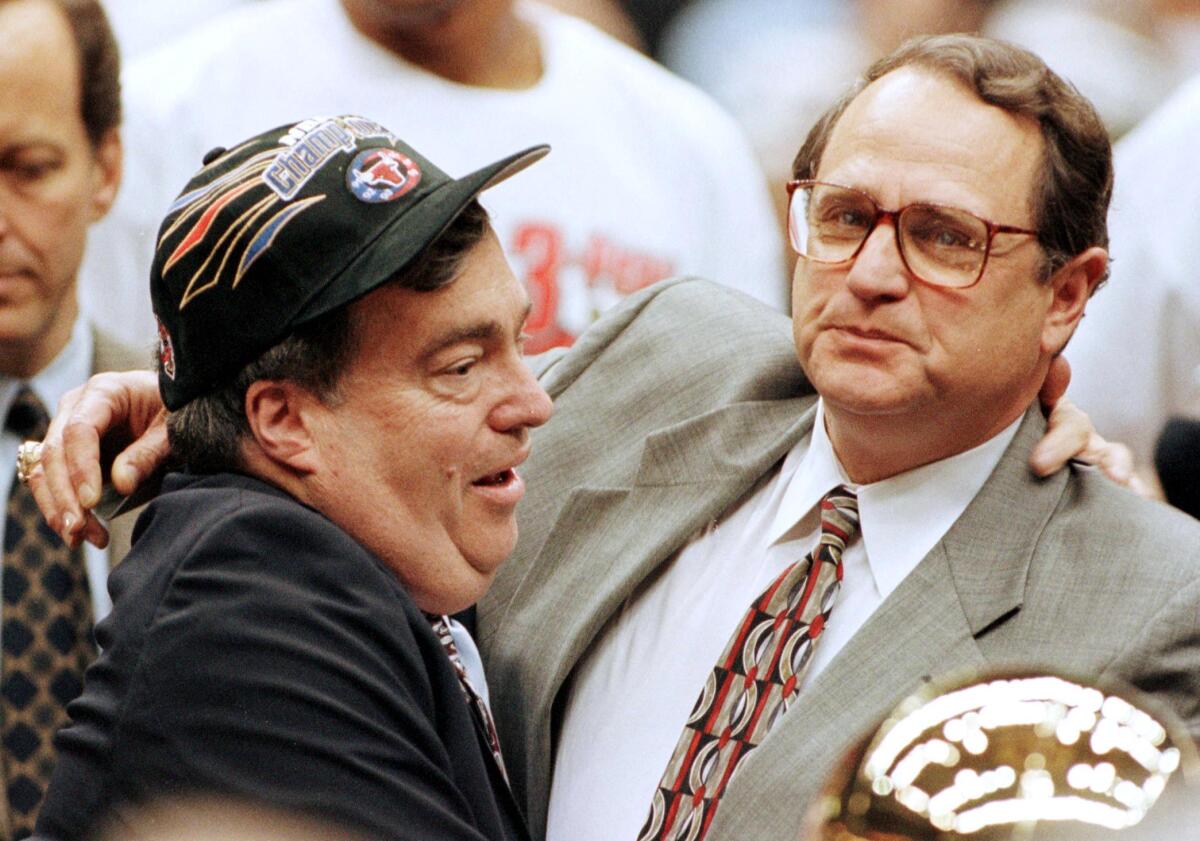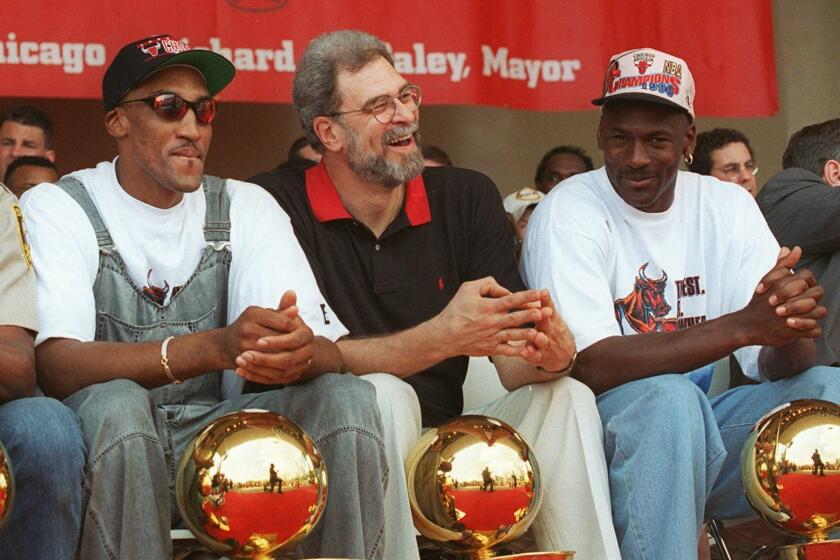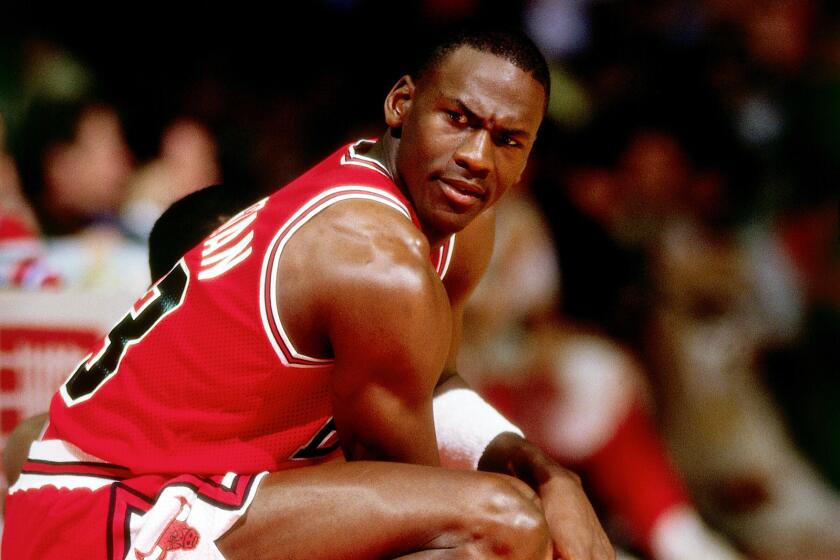Is it fair to portray Jerry Krause, architect of the Jordan-era Bulls, as a villain?

- Share via
For “The Last Dance” to truly work for five weeks and 10 hours, the story was going to need villains — and it was going to need ones who weren’t the hack-heavy (they’d call it “physical”) Detroit Pistons and New York Knicks.
Luckily, the man who built the team of the 1990s was also the person responsible for knocking it down, and unlike Mrs. O’Leary’s clumsy cow, Chicago Bulls general manager Krause set this fire on purpose.
In the first two episodes of “The Last Dance” we hear Krause celebrate Phil Jackson’s most recent, one-year contract with the team by reminding the press Jackson wouldn’t be back the following season. We learn of Krause’s fishing trip with Tim Floyd and the baffling decision to invite Floyd (and not Jackson) to a family wedding that other members of the organization attended.
The much-anticipated Michael Jordan docuseries will be the Super Bowl of the sports shutdown: It also will paint a very human picture of No. 23.
We see him try to grab his piece of adoration for the Bulls’ success, seemingly speaking directly to Michael Jordan when he says that organizations win titles — not players. We see him belittled, disrespected by his star players for being too short and too chubby.
And we learn that Scottie Pippen, fed up with Krause, not only delayed a foot surgery but also berated Krause on a team bus in front of the rest of the Bulls.
But is it fair for Krause, who died in 2017, to be the bad guy of “The Last Dance”?
Yes and no.
Krause is a Hall of Famer — you get that when you’re the architect of six championship teams. And although he lucked into Jordan (Krause’s predecessor, Rod Thorn, drafted Jordan), Krause drafted Pippen and Horace Grant. He went overseas for Toni Kukoc. He traded for Bill Cartwright, Dennis Rodman and Luc Longley.
And, maybe most importantly, he hired and then fired Doug Collins, clearing the way for Jackson to become the modern NBA’s most decorated coach.
But the personality missteps were there — the desire oozing out of him to be recognized alongside the team’s great players. In one of the most cringeworthy moments of the first two episodes, Krause walks out to receive his championship ring, where a crowd now disillusioned with him reacts as if it were just announced that beer sales would be suspended for the night.
Another: Bulls owner Jerry Reinsdorf saying that Krause simply loved people who wouldn’t love him back — a depressing thought as much as it is a knock on Krause’s social awareness.
From the start, Michael Jordan understood the value of his brand. His ESPN docuseries is his reminder to a new generation that he’s still the GOAT.
In the end, organizations didn’t win championships — at least not the Bulls’ — as Krause had claimed. Krause’s post-Jordan résumé is full of clunkers — trading Elton Brand for Tyson Chandler, drafting Eddie Curry and Marcus Fizer, and so on and so on ...
But during Jordan’s run, Krause was a needed part of the program. And for a show needing an antagonist, he filled that need too.
More to Read
Go beyond the scoreboard
Get the latest on L.A.'s teams in the daily Sports Report newsletter.
You may occasionally receive promotional content from the Los Angeles Times.













